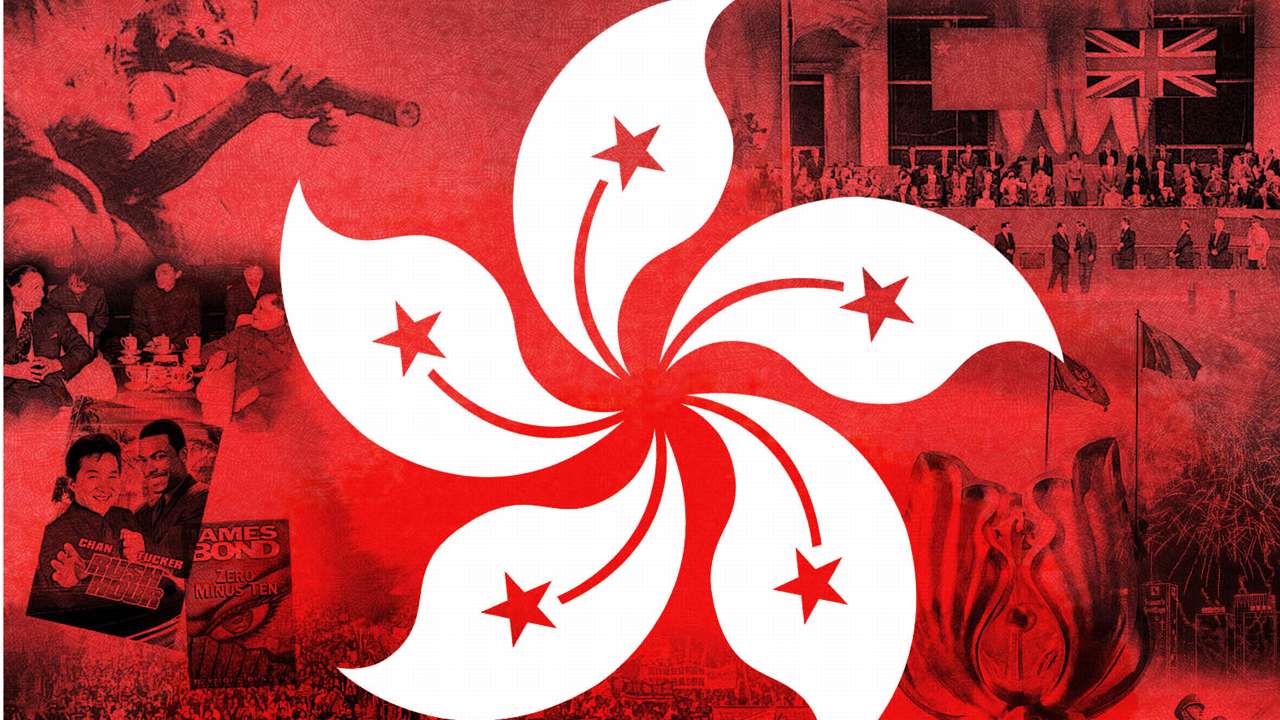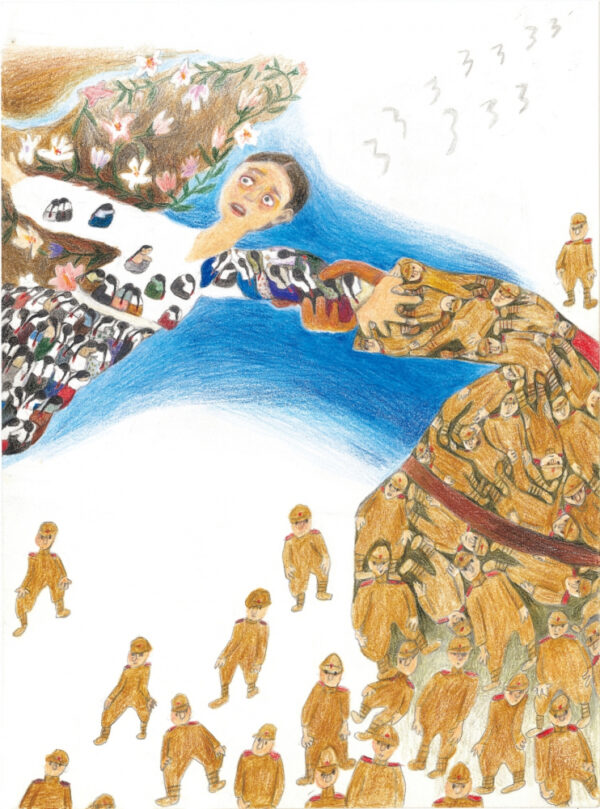In the few months since the second inauguration of US president Donald Trump, America’s foreign policy has changed to the point of being nearly unrecognizable. One of the most important implications for the world has been Trump’s scrapping of USAID, the American-run humanitarian aid programme that provides over 40% of global foreign aid.[1] Unsurprisingly, many countries affected by this cut in aid are now scrambling for a replacement, something that China has been more than happy to offer. Chinese officials have already committed to taking over a number of USAID’s former humanitarian causes from clearing landmines to child healthcare, and China seems more than happy to expand its influence.[2] However, the hole that USAID’s demise has left in developmental programmes and projects around the world may be filled by another familiar Chinese project: the One Belt One Road Initiative.
The One Belt One Road Initiative (better known to many as the Belt and Road Initiative, or BRI) is China’s flagship infrastructure and development programme, offering loans to foreign nations for infrastructure projects with the end goal of building a “new Silk Road.” In recent years, it has expanded into over 100 countries in Asia, Africa, Europe, and the Americas, spending over $1 trillion on the loans associated with the initiative.[3] As China’s flagship foreign initiative, it garnered significant foreign goodwill towards China through offering loans for development that few other countries or organizations offered, expanding China’s soft power across the world and enabling it to build better relations with a number of other countries. In particular, the BRI has heavily targeted African nations in its efforts, promising over $51 Billion USD of investment in Africa during a 2024 Summit.[4]
The nature of the BRI combined with the goals of China in implementing it arguably makes the scrapping of USAID a perfect opportunity for a continued expansion of Chinese soft power. Whilst other nations are likely to pick up some of the slack from USAID’s humanitarian programs out of either genuine concern or political motivations, the total amount of USAID’s developmental offerings perhaps represents far too large of a commitment for most nations.[5] Additionally, the shuttering of USAID programs have removed many of the roadblocks associated with China’s expansion of soft power. Previously, USAID served as a counterweight to Chinese influence, especially within regions of key interest to the US like the Asia-pacific. However, the USAID shutdown has managed to cripple local American influence for two reasons. Firstly, many of the projects USAID funded were ongoing, long-term projects; as soon as they received news of the shutdown, the partner organizations were forced to immediately seek funding from other (often Chinese) sources.[6] On top of this, the sudden announcement had greatly weakened trust in the US, and for good reason. Given the news that previously committed plans and projects could not be paused or cancelled at any time, local organizations are now far more wary of whether US funding and support can be trusted in the future, even after Trump leaves office. These factors have seemingly turned many groups off of US support for good, pushing them towards China instead.
Despite these massive blunders in foreign strategy, it would be incorrect to say that the Trump administration’s policies have all been favourable to China’s expanding influence through the BRI. Importantly, the willingness of the Trump administration to break previously unspoken rules of international engagement has caused quite a headache for China, seen through the case of Panama. In February, Panama announced that it would not renew its agreements with China as part of the BRI after they expire, marking a dramatic change in its policy towards China.[7] This sudden reorientation has been attributed to Trump’s inflammatory remarks towards the management of the Panama Canal, having previously threatened to invade Panama in order to ensure the “neutrality” of the Canal.[8] Given its current administration by a Hong Kong-based company, Trump has argued that the Panamanians have become too close to China, and pose a threat to the foreign influence of the US. In this case, the Trump administration chose to abandon previous soft-power approaches to counter Chinese influence, instead using the threat of military force and economic sanctions to deter other nations from closer partnerships with China. While it is unclear whether the US would use this strategy against other China-aligned nations, this at least poses a credible alternative to the role of USAID as a deterrence to further cooperation with China by other nations.
Thus, the future of the BRI under Trump remains unclear. While the new administration’s change in foreign strategy has opened a number of new pathways for China in foreign investment, its unwillingness to play by international rules also forces Chinese officials to reconsider their strategies on the global stage. However, despite the uncertain nature of China’s future international plans, it is safe to say that Trump has completely upturned the delicate web of US soft power, putting the spotlight on China’s global initiatives and their response.
Jack is a current third-year student at the University of Toronto with majoring in International Relations and Peace, Conflict, and Justice, and a minor in Contemporary Asian Studies. His research interests involve the rise of China and its international implications, with past research experience as a member of the G20 research group and a volunteer for the Canada-China Business Council.
Bibliography
Davidson, Helen, and Amy Hawkins. “US Cedes Ground to China with ‘Self-Inflicted Wound’ of USAid Shutdown, Analysts Say.” The Guardian. The Guardian, February 7, 2025. https://www.theguardian.com/world/2025/feb/07/donald-trump-usaid-shutdown-impact-china-relationship-funding.
Ezrati, Milton. “Beijing Doubles Down On The Belt And Road Initiative And On Africa.” Forbes. Forbes, September 16, 2024. https://www.forbes.com/sites/miltonezrati/2024/09/16/beijing-doubles-down-on-the-belt-and-road-initiative-and-on-africa/.
McBride, James, Noah Berman, and Andrew Chatzky. “China’s Massive Belt and Road Initiative.” Council on Foreign Relations. Council on Foreign Relations, February 2, 2023. https://www.cfr.org/backgrounder/chinas-massive-belt-and-road-initiative.
Tan, Huileng. “Experts Warned USAID’s Gutting Would Give China Room to Replace the US. Now, It’s Happening.” Business Insider. Business Insider, March 27, 2025. https://www.businessinsider.com/china-replace-usaid-shutdown-humanitarian-aid-funding-development-assistance-2025-3.
The Associated Press. “Panama Will Leave Beijing’s Belt and Road Project as U.S. Targets China’s Alleged Influence over Canal.” Fortune. Fortune Asia, February 2, 2025. https://fortune.com/asia/2025/02/02/panama-leave-belt-and-road-canal-china-trump-rubio/.
- Helen Davidson and Amy Hawkins, “US Cedes Ground to China with ‘Self-Inflicted Wound’ of USAid Shutdown, Analysts Say,” The Guardian, The Guardian, February 7 2025, https://www.theguardian.com/world/2025/feb/07/donald-trump-usaid-shutdown-impact-china-relationship-funding. ↑
- Huileng Tan, “Experts Warned USAID’s Gutting Would Give China Room to Replace the US. Now, It’s Happening.,” Business Insider, Business Insider, March 27, 2025, https://www.businessinsider.com/china-replace-usaid-shutdown-humanitarian-aid-funding-development-assistance-2025-3. ↑
- James McBride, Noah Berman, and Andrew Chatzky, “China’s Massive Belt and Road Initiative,” Council on Foreign Relations, Council on Foreign Relations, February 2, 2023, https://www.cfr.org/backgrounder/chinas-massive-belt-and-road-initiative. ↑
- Milton Ezrati, “Beijing Doubles Down On The Belt And Road Initiative And On Africa,” Forbes, Forbes, September 16, 2024, https://www.forbes.com/sites/miltonezrati/2024/09/16/beijing-doubles-down-on-the-belt-and-road-initiative-and-on-africa/. ↑
- Tan, “Experts Warned USAID’s Gutting Would Give China Room to Replace the US. Now, It’s Happening.” ↑
- Davidson and Hawkins, “US Cedes Ground to China with ‘Self-Inflicted Wound’ of USAid Shutdown, Analysts Say.” ↑
- The Associated Press, “Panama Will Leave Beijing’s Belt and Road Project as U.S. Targets China’s Alleged Influence over Canal,” Fortune Asia, Fortune, February 2, 2025, https://fortune.com/asia/2025/02/02/panama-leave-belt-and-road-canal-china-trump-rubio/. ↑
- The Associated Press. ↑








